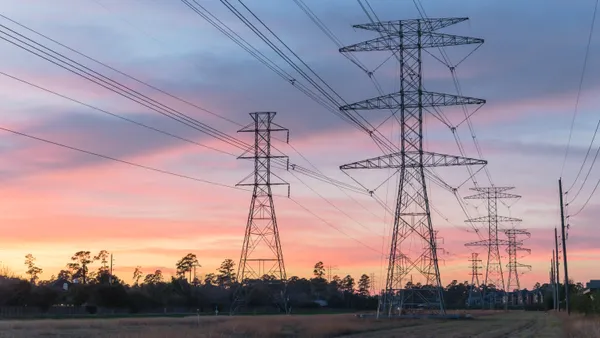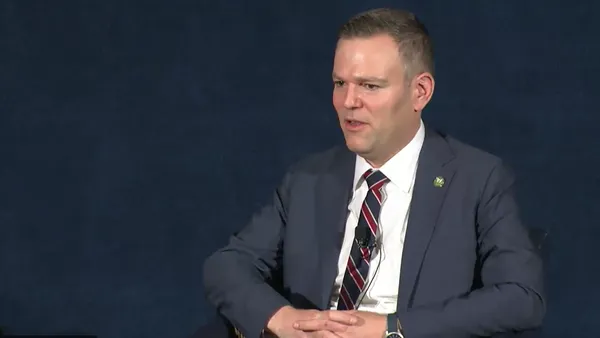Dive Brief:
- California regulators have rejected San Diego Gas & Electric's proposal to establish a separate investor-backed marketing division to lobby on community choice aggregation issues, saying the utility provided insufficient information to judge its separation from ratepayer funding.
- While the utility has said it is only trying to ensure a robust discussion of CCA issues, environmental and community activists expect the utility to oppose aggregation plans.
- The city of San Diego has a 100% renewables goal and wants to take over the purchase of electricity using the aggregation model, with SDG&E continuing to deliver the power.
Dive Insight:
The community choice aggregation model allows California cities to establish rates that support their own power mix, with utilities receiving a fee for distributing the power. While SDG&E has indicated it has no problem per se with the model, its plan to develop a separate lobbying arm alarmed activists last year.
The California PUC initially approved the utility's plan in July. At the time, regulators said the proposal complied with a mandate that prohibited ratepayer funds being used to fund lobbying efforts. But this month, regulators backtracked, expressing their wariness in a letter sent last month. Regulators said the proposal seemed to allow room for employees paid with ratepayer funds to lobby against the plan.
Regulators said that while SDG&E's plan expanded the term "personnel" to include agents as well as employees, they said the proposal "did not address how SDG&E would conduct a holistic review of the job functions." The utility has claimed permissible shared services should include regulatory affairs and legal, among other things.
A spokesperson for SDG&E, Allison Torres, told local media that the utility intends to provide more details to regulators this month. “While SDG&E believes the advice letter and compliance plan provided enough detail, the commission is asking for more information,” she told local TV station KPBS.
The community aggregation model is growing in California and is a concern for utilities. In November, the Redwood Coast Energy Authority, a CCA program representing towns in Humboldt County, filed its supply plan with state regulators.
















